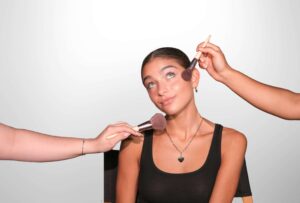The Price of Beauty

Welcome, beauty enthusiasts, to a conversation that transcends the realm of cosmetics and skincare. Today, we’re delving into the complex and multifaceted world of beauty standards, exploring the social and economic implications that underpin our perceptions of beauty. From the pressures of conformity to the disparities in access and representation, join us as we uncover the hidden costs behind society’s idealized notions of beauty.
The Power of Perception
Beauty, they say, is in the eye of the beholder. But what happens when societal standards dictate the parameters of beauty, leaving little room for diversity and individuality? From glossy magazine covers to Instagram feeds adorned with filtered selfies, the imagery we consume shapes our perceptions of beauty, often perpetuating unattainable ideals that leave many feeling inadequate. The relentless pursuit of perfection can exact a toll on self-esteem and mental well-being, fostering a culture of comparison and self-doubt.
The Influence of Media and Advertising
In an age of digital media and influencer culture, the beauty industry wields unprecedented influence over our collective consciousness. Advertisements bombard us with images of flawless faces and sculpted bodies, selling us the promise of transformation through the latest skincare miracle or makeup trend. Yet, behind the façade of glamour lies a carefully curated narrative that equates beauty with youth, thinness, and Eurocentric features, marginalizing those who fall outside these narrow parameters.
The Price of Conformity
For many individuals, conforming to societal beauty standards comes at a steep cost – both financially and emotionally. From expensive skincare regimens to cosmetic procedures with hefty price tags, the pursuit of beauty can strain personal finances and perpetuate cycles of consumerism. Moreover, the pressure to adhere to conventional beauty norms can erode self-confidence and fuel insecurities, leading to a perpetual quest for validation and external approval.
Cultural and Racial Biases
Beauty standards are not monolithic; they vary across cultures and are often shaped by historical, cultural, and racial biases. In Western societies, Eurocentric features such as fair skin, straight hair, and thin bodies have long been idealized, perpetuating systemic biases that marginalize individuals with darker skin tones or non-European features. This bias is further exacerbated in industries like fashion and beauty, where diversity and representation remain woefully lacking.
Access and Representation
Access to beauty is not distributed equitably. Socioeconomic factors such as income, race, and geography can significantly impact one’s ability to access beauty products and services. High-end cosmetics and luxury skincare brands may be financially out of reach for many individuals, exacerbating disparities in access to self-care and grooming essentials. Moreover, the lack of representation in beauty advertising and media further alienates marginalized communities, perpetuating feelings of exclusion and invisibility.
Empowering Authenticity
Amidst the pressures to conform, there is a growing movement towards authenticity and self-acceptance. Social media platforms have become platforms for marginalized voices to challenge traditional beauty standards and celebrate diverse representations of beauty. From body-positive influencers to inclusive beauty brands that prioritize diversity in their campaigns, there is a shift towards embracing beauty in all its forms. By championing authenticity and rejecting narrow definitions of beauty, we empower individuals to embrace their unique identities and reclaim ownership of their self-worth.

Redefining Beauty on Our Own Terms
Beauty is not a one-size-fits-all concept; it is fluid, multifaceted, and deeply personal. It transcends physical appearance, encompassing qualities of kindness, resilience, and authenticity. As consumers, we have the power to redefine beauty on our own terms, challenging the status quo and advocating for a more inclusive and equitable beauty industry. By supporting brands that prioritize diversity, representation, and social responsibility, we signal our commitment to a vision of beauty that celebrates the richness of human diversity.
The price of beauty extends far beyond the confines of cosmetics and skincare; it encompasses the social and economic implications of societal beauty standards. From the pressures of conformity to the disparities in access and representation, the pursuit of beauty exacts a toll on individuals and communities alike. Yet, amidst the challenges lies an opportunity for transformation – a chance to redefine beauty on our own terms and foster a culture of inclusivity and acceptance. Let us embrace the beauty within ourselves and others, recognizing that true beauty knows no bounds.

